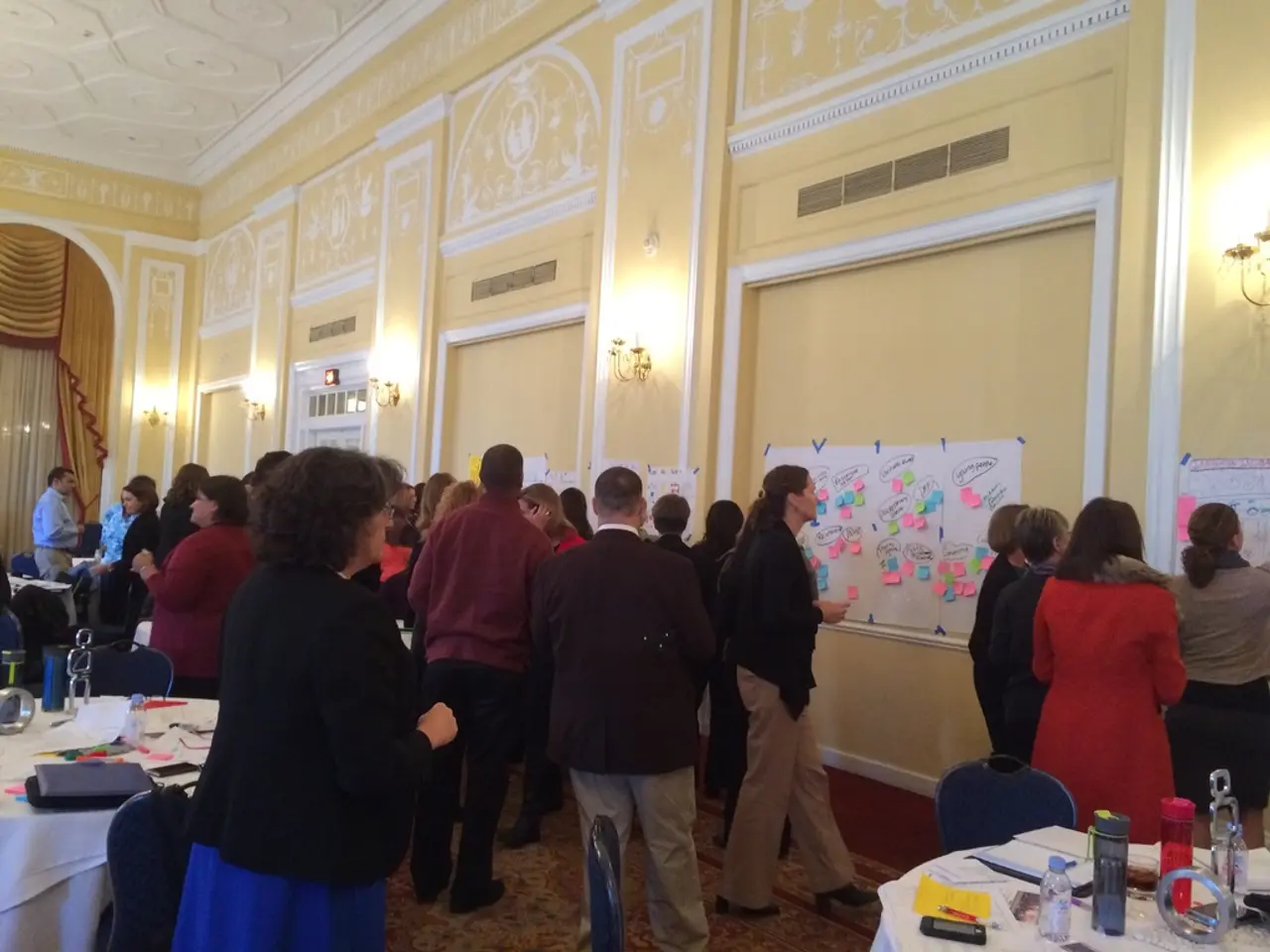European Culture and Education Committee of the Parliament pays a visit to Chemnitz, serving as European Capital of Culture for 2025
European Parliament's Culture and Education Committee Visits Chemnitz as European Capital of Culture
Chemnitz, Germany, played host to the European Parliament's Culture and Education Committee from Monday to Wednesday, as the city showcased its transformation into the European Capital of Culture.
The delegation, led by Hristo Petrov, Chair of the delegation from Renew, Bulgaria, and Sabrina Repp from S&D, Germany, was accompanied by Matthias Eckardt, a Saxon MEP. The group was welcomed by Mayor Sven Schulze and Andrea Pier, Managing Director of the European Capital of Culture Chemnitz 2025 GmbH, along with Stefan Schmidtke, another Managing Director.
During their visit, the delegation exchanged views with the city's leaders, emphasising the importance of the effects beyond the title year, the city's responsibility for the entire region, and the valuable exchange within the family of European Capitals of Culture. Pier, in particular, highlighted that the title has visibly changed Chemnitz and the region.
The delegation visited several key locations, including the Pleißenbach neighbourhood park, the largest project in the intervention area program of Chemnitz 2025, and the Urban Art exhibition Hallenkunst. They also explored the Munch exhibition at the Kunstsammlungen Chemnitz, the Karl Schmidt-Rottluff-House, the Maker Hub Stadtwirtschaft, the Kulturbahnhof at the South Station, and the Purple Path art and sculpture trail in Hohndorf.
The delegation also learned about the transformation of the former tram depot into the Garage Campus and visited the Documentation Centre for the NSU complex. Eckardt, a native of Chemnitz, expressed his pride in seeing his home in the spotlight of Europe.
The topic of the White Paper, initiated by Chemnitz and Nova Gorica, was also discussed. The White Paper contains 40 concrete proposals for the redesign of the legal foundations of the selection process for future European Capitals of Culture. The European Parliament's Culture and Education Committee members were able to see the tangible effects of European cooperation through the project on site.
Pier emphasised that the European Capitals of Culture are an indispensable instrument for strengthening European cohesion and making the diversity of Europe tangible. She expressed her wish that the members of the committee will carry the message of the tangible European cooperation through the project to Brussels.
No new discussions or topics were introduced in this paragraph. The delegation's visit to Chemnitz underscores the city's commitment to cultural and structural development, European networking on many levels, and the importance of the European Capital of Culture title.




